
There are several different reasons as to why people are human traffickers, but UNICEF USA helps outline some of the issues and reasoning for human trafficking. In its most basic form, human trafficking is the buying and selling of humans for various purposes, all across the globe. Many organizations and people liken human trafficking to modern day slavery. Human trafficking is the second most profitable illegal industry, besides drugs, making it a low risk and high reward option for traffickers. Drugs are only sold once, whereas with humans, you can buy and sell numerous times. The international labor organization estimates profits from human trafficking at around $150 billion annually. The high demand of sex workers, forced labor, prostitution, and child pornography is what causes the high supply of humans for trafficking. Traffickers look for people living in poverty, those who are desperate, those without legitimate job options, those without educational opportunities and the ones looking for a way to escape violence. It is easy for traffickers to target individuals who come from broken homes, poverty, educational disadvantages, etc. People who are in desperate situations are more likely to accept risky job offers and fast ways to make money without even realizing the situation they are putting themselves in.
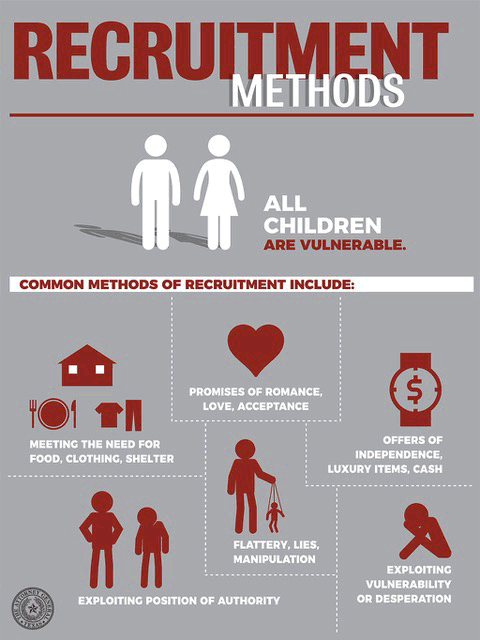
In 2021 1,186 signals were received through the Michigan Human Trafficking Hotline. These signals consist of texts, calls, emails, online chats, and webpages. Of the 1,186 signals received, 943 were received through a hotline call, 150 were sent through SMS text, 56 were obtained from online chat rooms, 24 were emailed to the agency, and 13 were received through the agency's web chat. Out of all the cases, 295 were identified. Of these victims, 252 were female and 28 were male. The crimes committed were sex trafficking, labor cases, and a combination of both. A majority of the minors involved in these cases come from teens who have run away from their home or foster care.
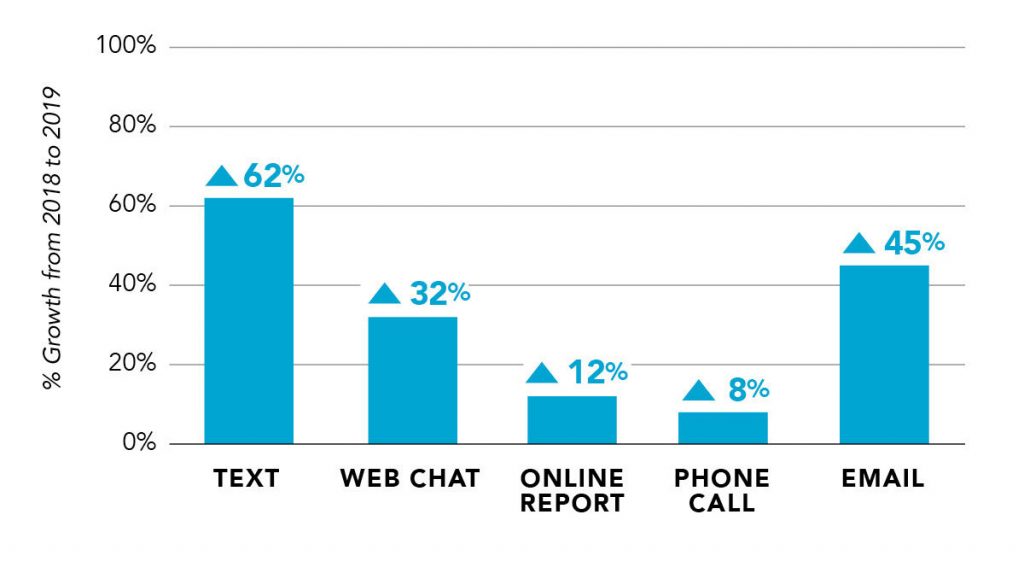
On January 29th of 2024 the Michigan Human Trafficking Commission held its first meeting with seven new members to address the critical work that needs to be done to end human trafficking. The Human Trafficking Commission is composed of 9 members appointed by the Governor, Attorney General, Michigan State Police, the Department of Health and Human Services, and the Department of Licensing and Regulatory Affairs. The Michigan Human Trafficking Commission is dedicated to identifying sources for grants that will assist in examining and countering human trafficking in this state and applying for those grants when appropriate, funding research programs to determine the extent and nature of human trafficking in Michigan, providing information and training regarding human trafficking to: police officers, prosecutors, court personnel, healthcare providers, social services personnel, and other individuals that the commission deems appropriate, collecting and analyzing information regarding human trafficking in Michigan, identifying state and local agencies within Michigan and other states, as well as within the federal government, that are involved with issues relating to human trafficking, and coordinating the dissemination of information regarding human trafficking in Michigan to those agencies, reviewing existing services available to assist human trafficking victims, including crime victim assistance, health care, and legal assistance, and establishing a program to make those victims better aware of the services available to them, establishing a program to improve public awareness of human trafficking, and lastly, reviewing existing state laws and administrative rules relating to human trafficking and making recommendations to the legislature to improve those laws and rules to address human trafficking violations in Michigan.

The National Human Trafficking Hotline provides safety planning tips and knowledge of how to look for red flags in a potential trafficking event. Some red flags to look for as mentioned by the national hotline are people who come on very strongly and promises things that seem too good to be true – i.e. promises extremely high wages for easy work, expects that you will agree to the employment or relationship on the spot, and threatens that otherwise the opportunity will be lost, is unclear about the terms of employment, location of employment and/or the company details/credentials, partner/employer denies access to information about your rights, denies contact with friends or family or attempts to isolate you from your social network, constantly checks on you and does not allow you access to your money, asks you to do things outside of your comfort zone such as performing sexual favors for friends, displays signs/characteristics of a dangerous person including: attempts to control movement and behaviors, exhibits jealousy, lashes out or delivers punishment in response to noncompliance, is verbally/emotionally/physically abusive and uses threats or displays of violence to create a culture of fear. The hotline also provides a list of ways to generally keep yourself safe in a trafficking situation. Some tips they provide are to trust your judgment of your surroundings, let a trusted friend know if you are feeling like you are in an unsafe environment, set up safe words with family and friends, keep important documents and numbers on your person at all times, contact 9-1-1 immediately if you feel that you are in danger, and always have a means of communication with you.
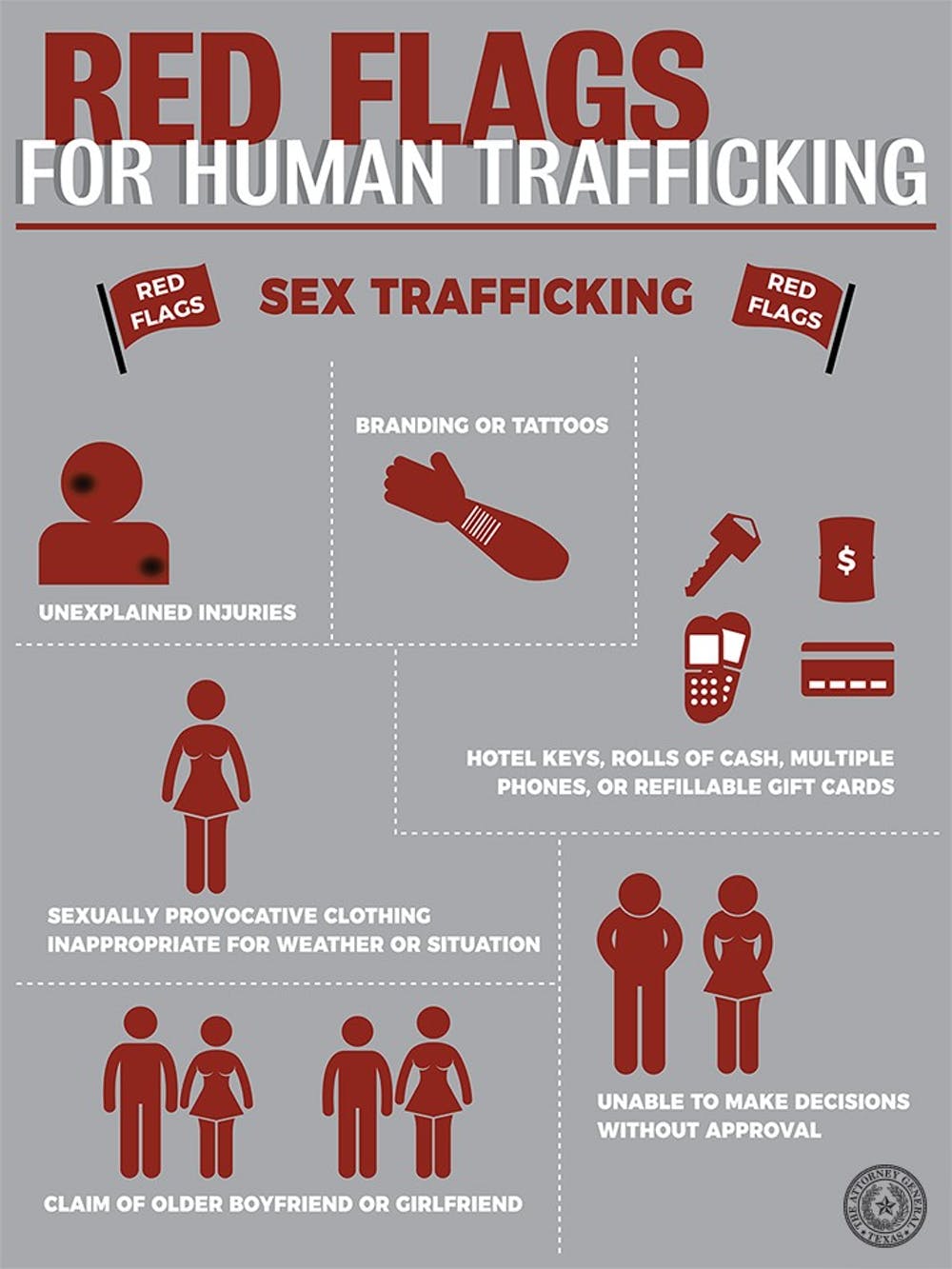
"I was sex trafficked for four years. I reached out to the National Human Trafficking Hotline five years ago. They were able to connect me with resources, with housing, and with case management services. I do not know where I would be had I not made that call. I do know that if they had not said, up front, clearly, that they would not call law enforcement, I would have hung up.
Prior to my sex trafficking, I was in a domestic violence relationship. My DV abuser had cut off access to everything I owned and all my money. I had no family or friends to turn to. I was middle class and a PTA mom. My domestic violence abuser was involved in local politics and was well known in our large community. I made a decision when faced with life or death and I ran for my life. I had nowhere to turn. I decided to try commercial sex. I had been having sex since I was two years old and knew that my body could provide income. I was not street smart. I had been in the life less than two weeks when I met someone I thought was my knight in shining armor. I was terrified my domestic violence abuser would continue to come after me and my trafficker promised me he could keep me safe. From my domestic violence abuser, he did. He did not keep me safe though. He would refer clients to me and I would give him a cut in return. I thought it was a business relationship. I thought I had the upper hand. My goal was to get housing and figure out a way to get my child from my domestic violence abuser.
Then it got controlling. At first, I received a cut of the money. After a few months, all the money I earned had to be handed over. I started being taken to other states against my will and became a high earner for my traffickers. The abuse I went through in those 4 years was worse than the lifetime of abuse I had endured up to that point.
It took me a while to understand the big picture. I did not know the definition of trafficking. I grew up with sexual abuse and it continued throughout my adult life. I knew what I was experiencing was different from what I had gone through before. This was the first time in my life where I was labeled with a price and sold as goods to others. I have always dealt with shame over sexual abuse but trafficking stripped me of my dignity.
I got away the first time with the help of some acquaintances but the traffickers found me and brought me back. They took me to multiple states where they would set up clients. At some point, we stopped at a highway rest stop and I was allowed to go to the bathroom by myself. There was a sticker for the National Human Trafficking Hotline on the back of the toilet paper holder and I memorized the number. I knew that if I ever had the opportunity, this number could be my ticket to freedom.
I had no phone and no access to a phone but several months later, a situation occurred and I was able to get away and get access to a phone.
I called the Trafficking Hotline. The first question I was going to ask them was do you tell what I tell you to the police? My traffickers knew where my child was and they threatened that if I ever went to the police, they would harm my child. I knew too much about their operation and they knew my child’s safety would keep me silent.
I didn’t even have to ask. The person on the hotline told me right away that it was up to me if they told the police or not.
If that person had said we have to report, I would have hung up the phone and figured it out on my own. If I had been able to figure it out on my own. I was in a state I had never been in. I had only gotten a mile or two away before someone let me use their phone.
When I called the hotline, I was hiding behind a dumpster. They got me a bus ticket under a different name. They provided an opportunity for me to get out of my trafficking situation on my own terms. They did not put stipulations on what would have to take place for me to receive help. Until that point, everyone else had a say in my life except me. During my phone call with the hotline, everything was my choice. I had complete control of how things played out. If I didn’t get that help, I am unsure if I would have gotten out at that time. It is very likely they would have found me. It is also very likely they would have killed me and a third opportunity to escape would not have been possible. If the hotline had said that they would contact law enforcement, I would have sacrificed my freedom for my child’s safety. My traffickers had photos of my child waiting for the school bus that they would show me. This was not a threat without merit.
The hotline opened a door to freedom for me. They provided resources and connected me with agencies that provided day to day support. The hotline was my first point of contact and I am thankful they do not mandate law enforcement reporting. Coming out of trafficking does not have a guidebook. There is no easy path to follow that says this is how you go ahead and move forward as a person with a history, as a businesswoman, and as an entrepreneur. No one has a play by play for life when it butts up against some of the trauma you have experienced. I have learned how resilient I am. I have also learned I have a voice that matters. I am thankful for this opportunity to share how the hotlines policies and procedures impacted my life for the good."
– Susannah
https://polarisproject.org/survivor-story-susannah/
An organization by the name of Polaris did an analysis in 2020 of the data from the U.S. National Human Trafficking Hotline found that the Internet was reported as the top recruitment location for all forms of human trafficking. They noticed that there was a significant increase in the proportion of potential victims for whom Facebook and Instagram were the sites for recruitment into trafficking.
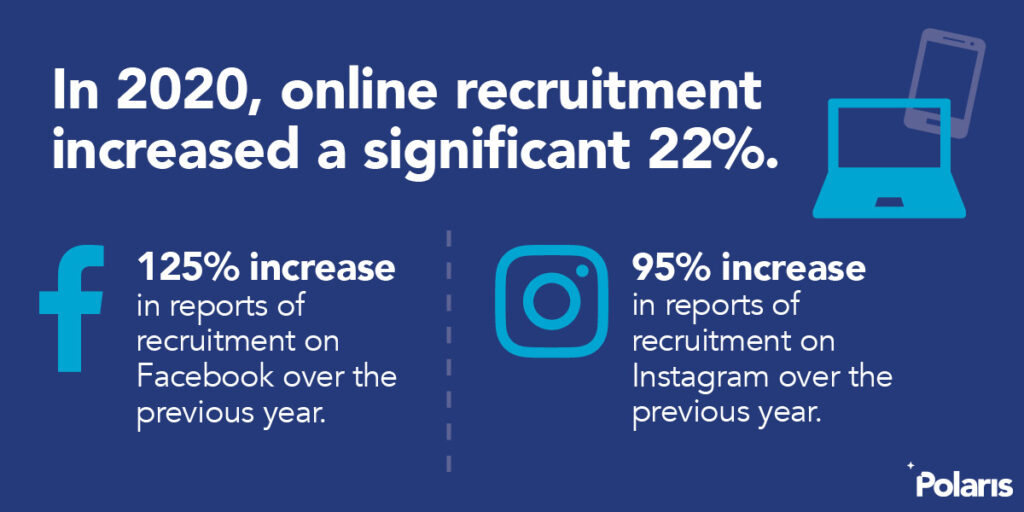
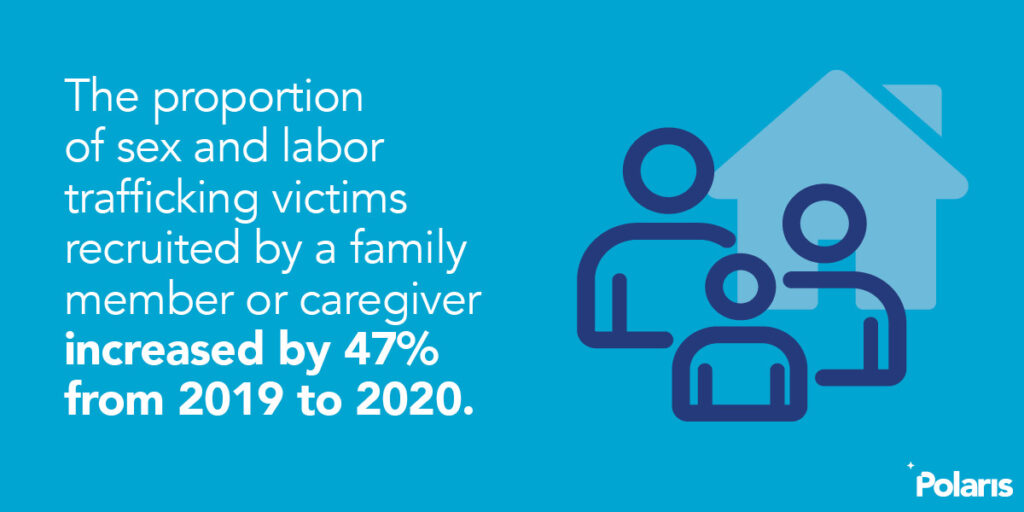
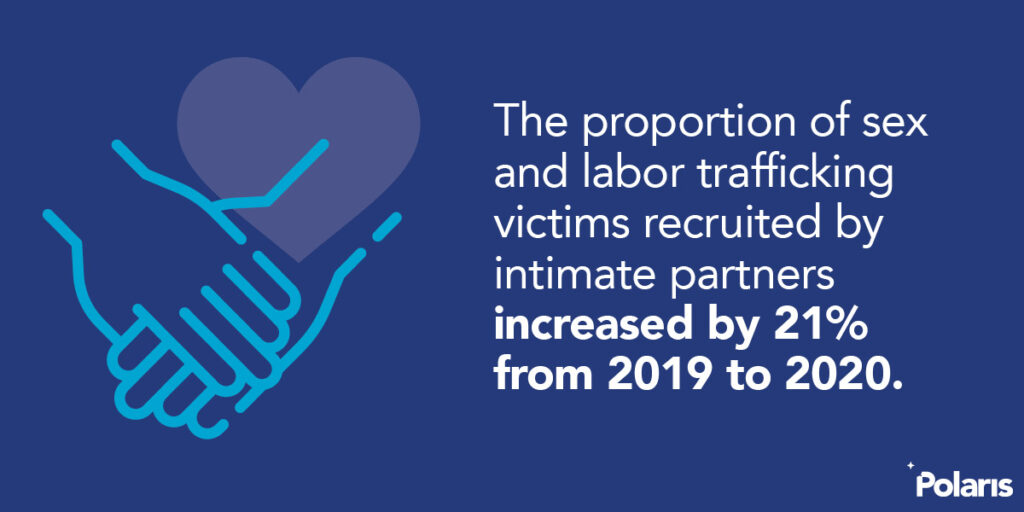
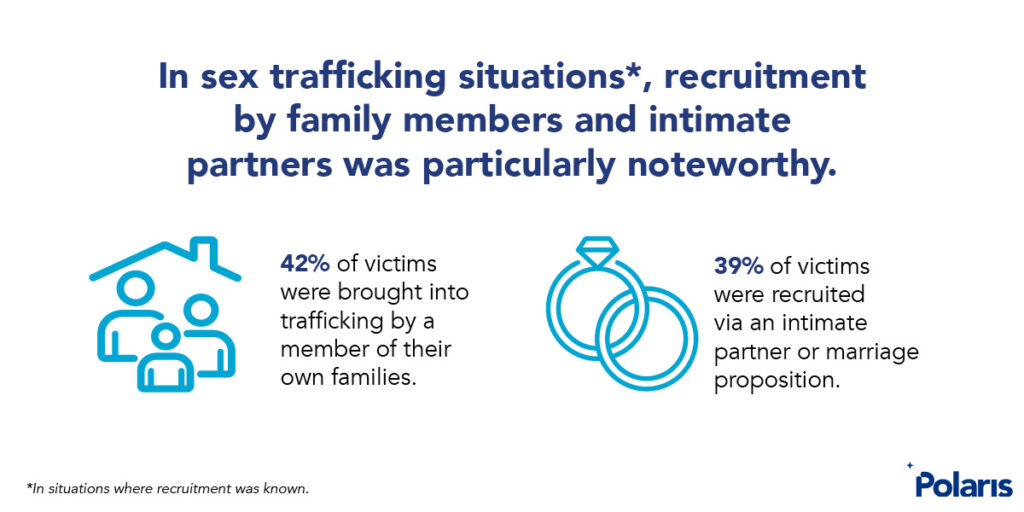
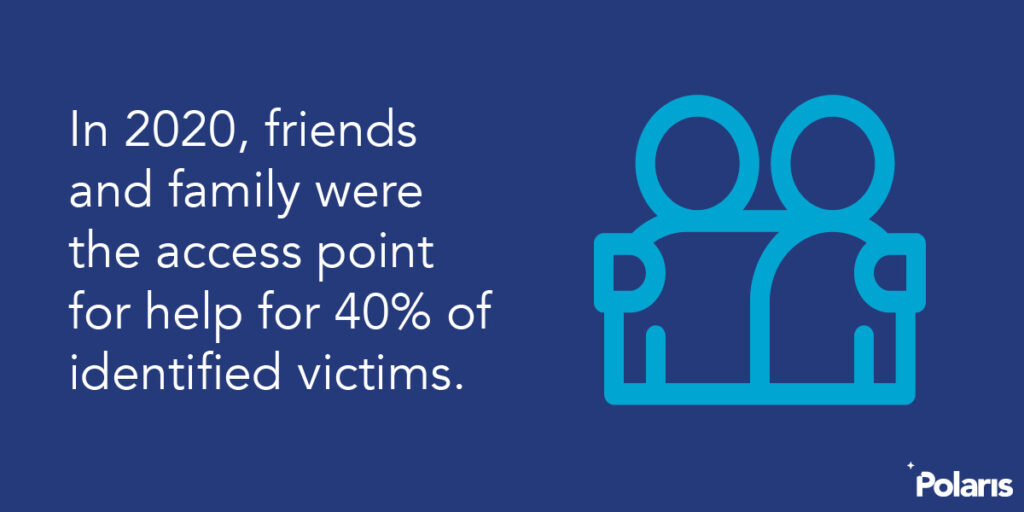
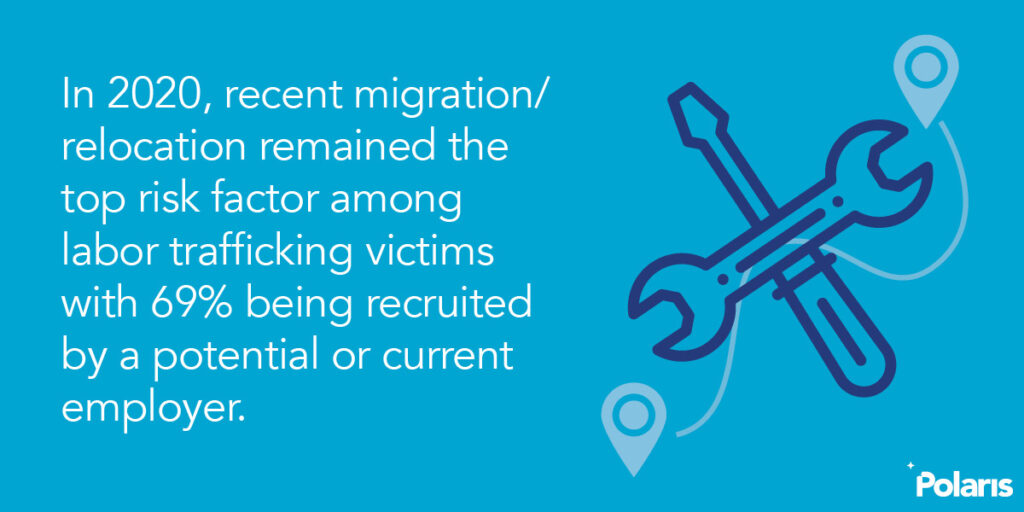
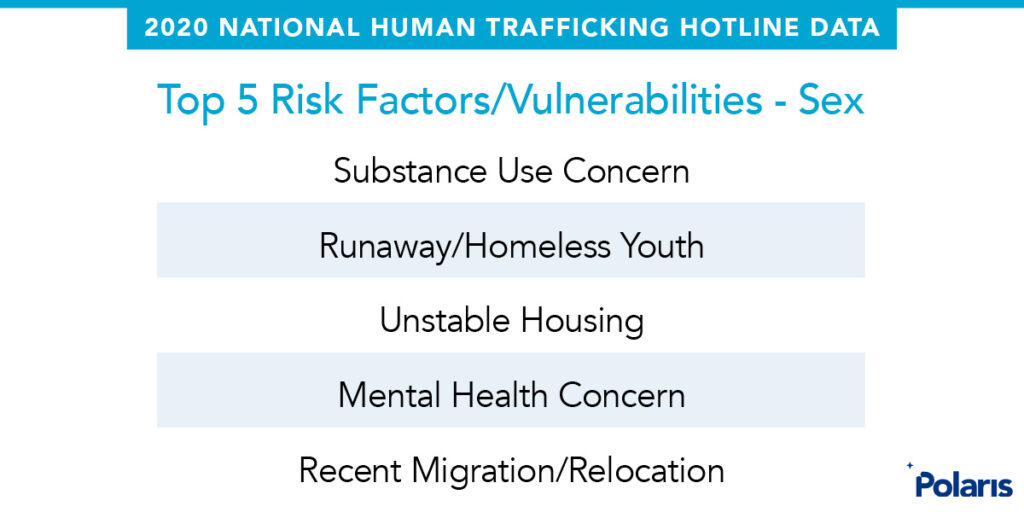
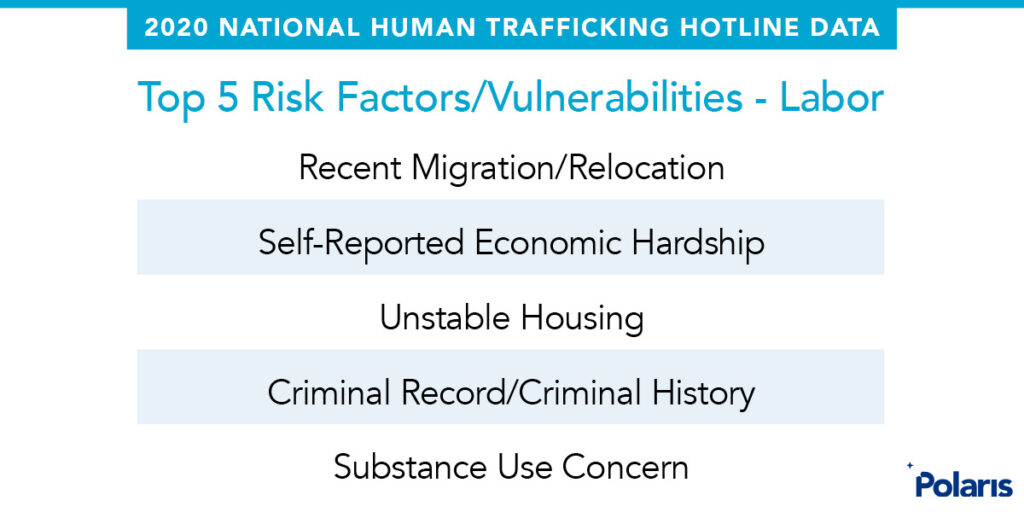

To report suspected human trafficking to Federal law enforcement: 1-866-347-2423
To get help from the National Human Trafficking Hotline: 1-888-373-7888
Michigan Resources and Services:
